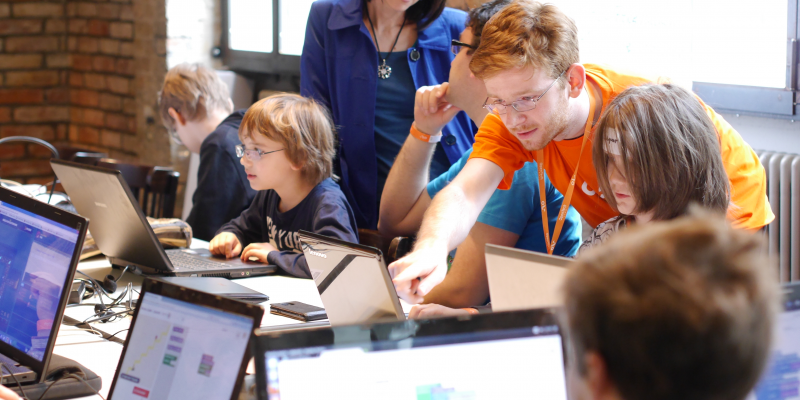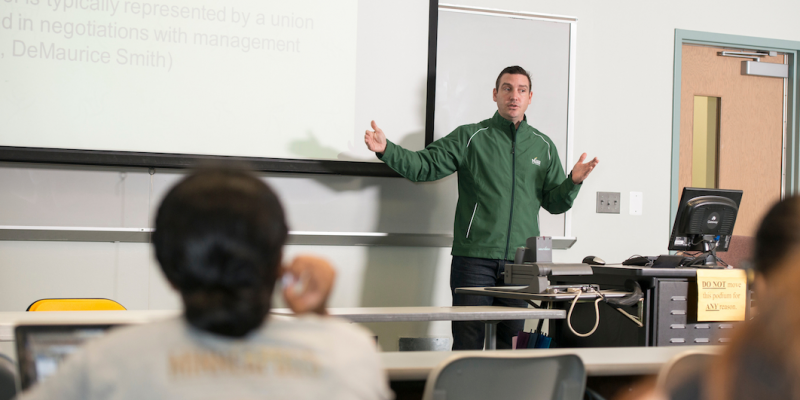- Once again, data scientist ranks as the best job in America, according to employees.
- Business Insider interviewed a data science manager at Glassdoor to learn what it’s like to have the best job in America right now.
- Data scientists not only command high salaries, but play a huge role in influencing company decision-making.
For the third year in a row, data scientist has been ranked the best job in America.
According to rankings by job site Glassdoor, the data scientist position has the highest overall job score of 4.8 out of a possible 5.
To determine its job rankings, Glassdoor takes into account the average salary of positions listed, the number of open positions, and the average job satisfaction of employees in these roles.
According to Glassdoor, data scientists have anaverage compensationof $120,000 per year, there are 4,524 job openings, and overall job satisfaction in the position scores a 4.2 out of 5.
To find out what it's really like to have the best job in the country, Business Insider interviewed Ling Cheng, a Data Science Manager at Glassdoor.
Why data scientist is the best job this year

Aside from the great pay and ample job opportunity, data scientists help steer their companies in the right direction.
"I think that it's a really exciting field," Cheng told Business Insider. "More and more companies are starting to realize the potential they have in their data.A data scientist who's answering questions for you does their own delving in and serves as the detective.
"You have to be open to what comes out of the data. What is it telling you versus what you believe in? This can happen when we look at A/B tests, when we look at products, and it can be in strategy, where we find what's working and what's not."
What being a data scientist actually looks like

Data scientists can impact the decisions that managers make, with respect to product management and operational efficiency.
"It varies by company, but overall, it could be generating insights for high-level decisions, product decisions, business decisions, or strategy decisions," Cheng said.
The job can also include building dashboards to display data in a more visually clear way. A single dashboard can include several charts and graphs containing different information.
"So, in Glassdoor's case, it could be building salary estimates, looking at how to return results for job search," Cheng said. "I think those are kind of the big areas. Insights, dashboards, and building products."
The main difference between a data scientist and a data engineer

Although there is quite a lot of overlap between data scientists and data engineers, their roles are not to be confused.
"A data engineer is responsible for making sure that data scientists have all the data that we need and that we get it in a timely manner," said Cheng.
As Vik Paruchuri wrote on DataQuest, "Data engineers are responsible for constructing data pipelines and often have to use complex tools and techniques to handle data at scale." He continued: "Unlike [data science], data engineering leans a lot more towards a software development skill set."
Data scientists really depend on data engineers, Cheng told Business Insider, "because we need the data processed, and we need it available in a way that we can get to it without waiting hours. So they build tools and process the data in a way that allows us to do that."
A typical day in the life of a data scientist

Like many jobs, each day in the life of a data scientist can look extremely different.
"It's a combination of coding, reading papers, talking to product managers, data engineers, and then also looking at data myself to get some of my own insights," said Cheng.
"But mainly, each day is different. This morning, I was reading a paper that someone shared, and then I had to interpret it and see how well the ideas could work for what we're doing.
"And then I had to look at some code that someone was prototyping. So I'm looking at their code, how it performs, and then I have to talk to so many different people to get it working.
"So we work with data engineers for implementation, I work with the product managers to discuss the products at hand, and because I'm a manager, I also talk to my reports."
Misconceptions about the job

"One of the misconceptions is that data scientists are just datamonkeys, that others in the company come up with all the questions that we need to answer, and you have a bunch of requests, and they are just going to answer your question and come back to you with that," said Cheng.
Instead, data scientists can impact the decisions that managers make with respect to product management and operational efficiency.
"With almost every project, as we start digging through the data, we find new directions to go to, or maybe we find things we didn't know were there, or maybe the outcome was totally different from what we expected.
"You're not just answering questions given to you by the managers, which I think is sometimes what people might think to hire one for," she said.
Most useful skills for a data scientist to have

There are both technical and entrepreneurial skills aspiring data scientists should develop in order to succeed in the role. Cheng outlined a few:
• SQL• Some Python• R • Modeling • Dashboarding • Depending on the data scientist you are you can use Tableau • More recent big data tools like Hadoop
"Just as important is having product and business sense," Cheng said. "Having your own intuition and understanding of your subject area so that you can come up with good questions and build models that actually make sense to the area that you're building."
How to become a data scientist

The level of education you need to become a data scientist can vary depending on the role and company at hand.
"More analytics-focused DS roles typically just need a bachelor's degree, but ML-focused roles tend to prefer either advanced degrees or more experience," said Cheng.
In her experience, many PhD graduates in STEM fields become data scientists, because DS-focused roles generally pays better, and come with research and learning aspects that appeal to PhDs. There's even a program calledInsight Data Sciencethat specifically trains PhD graduates to become data scientists - but although Cheng works with many PhDs, she says you don't need one to be successful in the field.
"Also, there are a lot of data science openings and there are a lot of people training to become data scientists," Cheng said. "If you are totally getting into it, there are data science bootcamps, there's online courses, there's Udacity, there's online communities."
Advice for breaking into the industry

"I think the way to build the product and business sense is to build projects using real data," Cheng said. "I always tell people who have no experience to find something they're interested in and find a way to do a data science project around that."
One of the more well-known examples of someone who created their own project is Nate Silver, who started posting forecasts for the performance of MLB players for fun. He became more famous after predicting the individual state outcomes of 2008 Presidential election, Cheng said, and then started the fivethirtyeight blog, which gave a higher probability to Trump winning the 2016 election than most sites.
"You can even do it with any job, even if you're not a data scientist," Cheng said. "What I've seen is people in operations doing some data science on their area and that can actually transition you into a data scientist. It's finding ways to be a data scientist in your current job."











